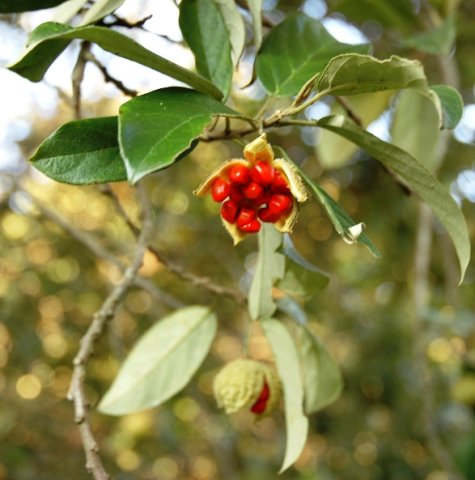Kiggelaria africana

Author: Ivan Lätti
Photographer: Johan Wentzel
Kiggelaria africana or the wild peach is a small to medium-sized tree that reaches heights from 4 m to 13 m (SA Tree List No. 494).
The red or orange-scarlet, coated seeds become exposed when the globose fruit capsule splits along seams that meet at the fruit tip. The four or five valves of the warty fruit spread in a star-shape, exposing the seeds that need dispersal. The seeds are actually black, but covered in this sticky “marketing material” or bird food for enticing the many birds that make sure the dispersal plan works. Gardeners also plant these trees for attracting the birds.
K. africana has a very large geographical distribution, with some presence in all nine provinces of South Africa. It is mainly found from the Cape Peninsula all along the southern and eastern coastal parts to KwaZulu-Natal and inland to the eastern Free State, Gauteng, North West, Mpumalanga and Limpopo. It also grows in most southern African countries, including Zimbabwe and northwards to Kenya. The photo was taken at Mount Sheba.
The habitat is varied, including montane kloofs, forested areas, forest margins and rocky outcrops in grassland. The species is not considered to be threatened in its habitat early in the twenty first century.
The pinkish wood of the wild peach tree is a suitable timber. This wood also yields a pink dye (Coates Palgrave, 2002; Schmidt, et al, 2002; http://redlist.sanbi.org).

